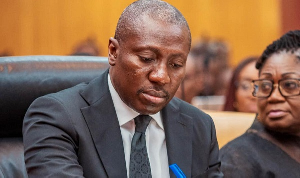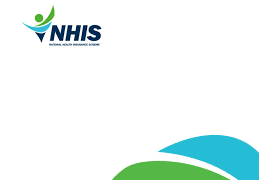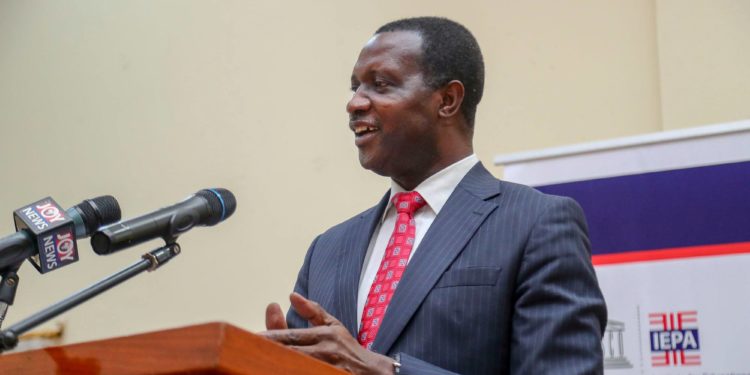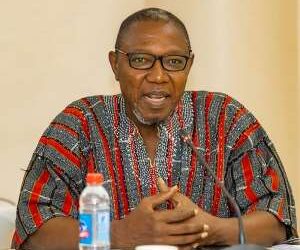The Education Minister Dr. Yaw Osei Adutwum says government is keen on making education in Ghana accessible, relevant and of good quality. According to him, Ghana will prosper and be transformed into a world class economy in the 21st century if education is delivered well in the country.
“Three years ago, Ghana’s gross tertiary enrollment ratio was 16.19 and South Korea was 93.6 and thus we were advised by the latter to increase the number of our tertiary institutions so that we can see the transformation that we have been aspiring for. If a country does not move its gross tertiary enrolment up appreciably to about 40% and more that country will not see any transformation in its education system,” he said.
Speaking in an exclusive interview on the Atlantic Wave, he highlighted various interventions by government to ensure Ghanaians gain access to a quality and beneficial education.
“Access was tackled when capitation grants were given so that parents didn’t have to pay anything as their children enrolled in basic schools. But since access is not enough, the four-year bachelor degree of education programme was also introduced to ensure that even at the KG level within the next two years the teachers who will go there are people with four-year degrees and not a diploma which was two years and an additional one-year practicum.”
Dr. Adutwum also mentioned that the National Standard Test as one of the measures put in place by government to promote quality education in the country. He noted that the test which will be written by primary four pupils in public schools will enable parents to know how their children are performing at the national level when it comes to knowledge, skills, values and attitudes. He added that teachers will also get to know the weakness of their respective students in terms of reading and writing so they provide the needed support.
In the meantime, he said in order for teachers to address the weakness that will be identified in students after the tests, government is working with the Ghana Library Authority at the Ministry of Education to roll out literacy programmes in schools.
He however indicated that in order to solve the literacy crisis among pupils and students, the government needs to gather the data of those who have challenges in reading and writing and in other subjects so that they can be given the necessary help.
“If you don’t have gathered data, you are not able to really know students with academic challenges. Thus, it is so critical that we get data and put it in the public domain and then we will begin to look at why is it that students are not doing well in a particular subject. Actually, this is a watershed moment to me in the history of education in Ghana where we are going to begin to get the critical data that will help us do the meaningful interventions to really bring out the outcome we need so badly.”
Free SHS’s double enrolment and inadequate infrastructure
Addressing the issue of double enrolment and inadequate infrastructure in the wake of the free Senior High School (SHS), he noted that the complaints by Ghanaians is because government failed to educate the populace on the implementation processes of the Free SHS.
“The implementation and information gap is what we probably did not navigate well. When we say double track, we need to break it in such a way that people will know that you’ve increased enrollment but have just created two tracks for form one or else for example when someone hears about double track, in his mind it is about doubling enrolment. Thus, the person can conclude that if you have doubling enrolment then the classroom should be congested. Consequently, you are reducing quality and it is legitimate to draw those conclusions. If we do not explain it, then that is what the person is inferring and that inference to the person becomes a fact and this can then become a challenge for any policy that will be implemented in that regard.”
STEM education
Speaking on the relevance of the Science Technology Engineering and Mathematics (STEM) programme introduced into the country’s education system, he stated that it has become necessary for Ghana to equip its future workforce with skills that will help them to become critical thinkers and functional in an era where 75 per cent of jobs in fastest growing industries require workers with STEM skills.
“The upcoming fourth industrial revolution is about IT, human interfacing with IT, biological interfacing with electricals and the internet. In this era, robotics and automations are taking over. According to researchers, the children who are currently in primary school by the time they graduate from the University, sixty percent of them are going to work in jobs that do not exist at the time they were in primary school” he said.
He added “This means that things are shifting rapidly and countries that are going to survive in the fourth industrial revolution are countries that train their children to be critical thinkers and STEM gives students the opportunity and they are able to transition from one job to the other without a hitch. That is the way of today and not just the future.”
The education minister also revealed that next year, ten new schools across the country are going to be operationalized as STEM schools in the country.
“I am so excited that next year the schools are going to open and we are going to have both smart schools and classrooms. Promethean boards will be used in classrooms and not chalk boards. Tutors will teach in their respective classrooms based on the subject they teach. This will happen next academic year which starts in February.”
According to him, this new schools will be affiliated to existing high performing schools so that they can also be trained to become excellent schools.
“The new schools that are opening are going to be operationalized in such a way that they will be high performing,” he revealed.
On the scrapping of double track in SHS, he stressed that this system of education is gradually phasing out even more infrastructure becomes available. Dr. Yaw Osei Adutwum also assured Ghanaians that government’s commitment to introduce the no guarantor system in the acquisition of loans will soon be discussed at government’s cabinet meeting after which when approved will become a policy that will amend the student loan Act for it to be implemented immediately.
Source: Rosemond Asmah/ATLFMNEWS



























